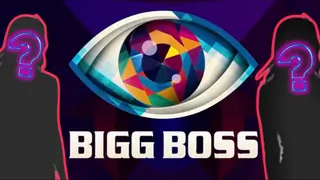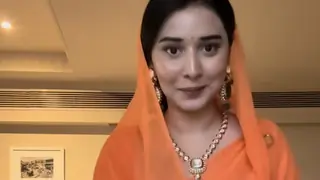Originally posted by: Samanalyse
You are right about the promos not foreshadowing the show literally, but then their purpose was to give us hints about who the characters were, and the central premise of the story based on their respective journeys. They contain all the basic components -- Dev thinking he understands his mother, Sona trying to enter that sphere and being pushed out, the tragic love that is clear between the two, and their inability to be together -- and as I mentioned, the key component is the tagline. "Kya khote aur kya pate jab dil ke phaisle dimag se hote hai?" There was no way for the promos to indicate so completely how these characters would in fact shape up over 100+ episodes.@the above quoted: I really don't think Ishwari has been "made evil." Her internal conflict and the fears that dictate her actions have been very convincingly built, and stand as a testimony to the helpless position in which this patriarchal system places women who lack identity outside of the domestic/maternal sphere. In the system that Ishwari follows, the man is the center of the household and your proximity to him determines your status in the hierarchy. Women have to fight for this status while maintaining the image of, as someone said on the forum recently, "tyaag ki devi, mahhanta ki murti," so the only form of communication left to them is passive aggressive and indirect. At the moment, Ishwari operates on the premise that if Dev understands her non-verbal cues and gives her what she wants, she wins and maintains her position in the household; if not, she loses. Under no circumstances can she betray that she is feeling insecure, that she is not perfectly selfless, and that his happiness is not enough for her to be happy.And the thing is, Ishwari has given her life to be highly proficient in this old system of managing relationships. She was chosen for her husband by her saas, and I imagine she was the ideal bahu and wife as far as their expectations went. Once her husband died, she suffered for years raising her children according to that system -- favour the son because he will be the next head of the house while the daughters are destined to be estranged. In all this she has become an expert at this passive form of communication (breaking the vase - her conversation with Bijoy) -- she says things in such a way that her message gets across but she always has plausible deniability. Now when the time has come for her to reap the rewards, as the all-powerful matriarch, ruling her family, Dev turned the tables by choosing Sona for himself, completely independent of her. She probably feels like someone who's spent years working at the same company, only to have the boss say they are bringing a new person instead of promoting her becuase the whole system has changed, and her skills are obsolete. When something like that happens, it's hard to consider why the new system might actually be a good thing.Ishwari simply does not have the capacity to understand Dev and Sona's relationship, or that Sona is not "competition," because it is so far from what she knows, and the system she is embedded in. Her actions come from a place of fear and ignorance, not malice or evil. That does not make the actions themselves right, but helps us see that the solution might lie in gentleness and patience rather than anger and vengeance.
...and thank you @Gemini for starting this interesting discussion...😊






















